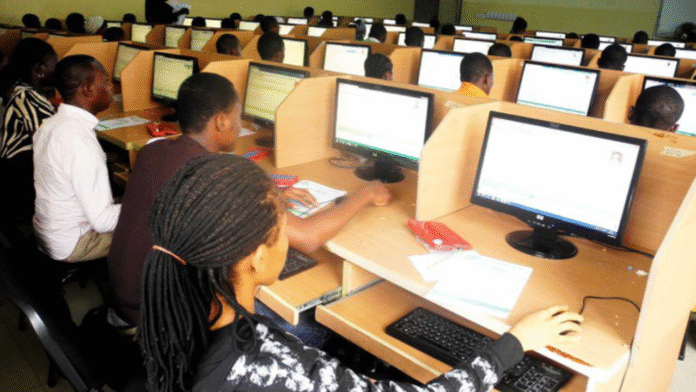Nigeria plans to train 20 million young people in digital skills by 2030 as part of efforts to boost youth employment and position the country for growth in the global digital economy, the vice president’s office said.
The initiative, launched in partnership with the United Nations Children’s Fund (UNICEF) under the Generation Unlimited Nigeria platform, was announced after Vice President Kashim Shettima met with UN officials in Abuja recently.
“This initiative opens a window of opportunities for our young people,” Shettima said in a statement obtained on Monday. “If we want to thrive in a fast-changing world, we must empower our youth through digital skills.”
Shettima accepted to chair the board of GenU 9JA, a public-private-youth initiative that aims to expand access to digital tools and economic opportunities for young Nigerians.
He noted that the programme aligns with the government’s Renewed Hope Agenda and is anchored on three pillars: digital connectivity, pathways from learning to earning, and youth empowerment.
UNICEF officials present at the meeting said the programme had already made significant progress since its launch in 2022.
According to UNICEF Deputy Representative Dr Rownak Khan, Nigeria ranks among the leading countries globally in youth-focused digital impact under the GenU framework.
Chief of UNICEF’s Lagos Field Office, Celine Lafoucriere, added that more than 10 million young Nigerians had been reached through GenU 9JA, with over 1,500 job placements secured so far.
Despite these efforts, Nigeria faces a major digital skills gap. A 2023 survey by Nigerian edtech company GetBundi found that over 100 million youths lack digital literacy. Among 100 National Youth Service Corps members surveyed, only 19 reported any digital skills, mainly limited to Microsoft Excel.
Advanced skills such as programming or data science were nearly absent among locally trained graduates, the report stated.
Nigeria’s education system has long faced criticism for outdated curricula that do not reflect the needs of a digital economy. Universities and other tertiary institutions often lack practical, skills-based training.
The new programme builds on existing initiatives, including the Digital Nigeria Programme launched in 2020, which offers free online training in emerging technologies, and the National Information Technology Development Agency’s Digital Literacy Drive, which targets rural and underserved communities.
UN Resident and Humanitarian Coordinator Mohammed Fall said the UN remained committed to supporting Nigeria’s goals around youth employment, skills development and digital inclusion.
The PUNCH



